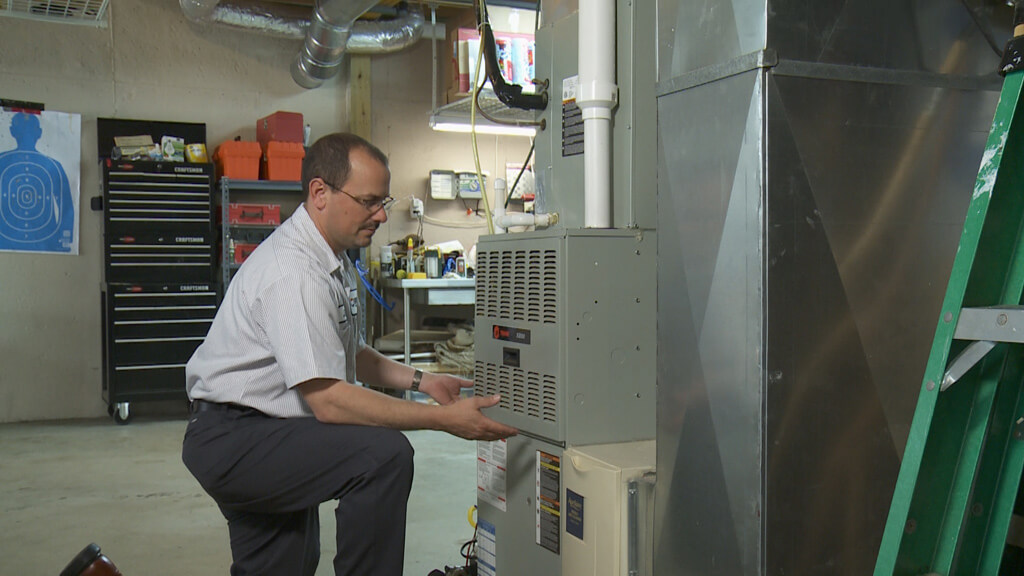Choosing the right HVAC system for your home is an important decision that can impact your comfort, energy efficiency, and indoor air quality. With so many options available, it can be overwhelming to determine which system is the best fit for your needs. In this article, we will discuss the factors to consider when choosing an HVAC system and provide key takeaways to help you make an informed decision.
Key Takeaways
- Consider the size and capacity of the HVAC system to ensure it can effectively cool and heat your home.
- Energy efficiency is an important factor to consider as it can impact your energy bills and environmental footprint.
- There are different types of HVAC systems available, including central air conditioners, heat pumps, and ductless mini-split systems. Each has its own advantages and considerations.
- SEER, AFUE, and HSPF ratings are important indicators of the energy efficiency of an HVAC system. Understanding these ratings can help you choose a system that meets your needs.
- Consult with a professional HVAC contractor to assess your home’s specific needs and recommend the most suitable HVAC system.
Factors to Consider when Choosing an HVAC System
Size and Capacity
When choosing an HVAC system for your home, one of the most important factors to consider is the size and capacity. The size of the HVAC system should be appropriate for the size of your home to ensure efficient heating and cooling. A system that is too small may struggle to adequately heat or cool your home, while a system that is too large may cycle on and off frequently, leading to energy waste and potential wear and tear.
To determine the right size and capacity for your home, it is recommended to consult with a professional HVAC contractor who can perform a load calculation. This calculation takes into account factors such as the square footage of your home, insulation levels, and the number of windows and doors. By accurately assessing your home’s needs, you can choose an HVAC system that will provide optimal comfort and energy efficiency.
Here is a table summarizing the recommended HVAC system sizes based on square footage:
| Square Footage | HVAC System Size |
|---|---|
| Up to 1,000 | 1.5 – 2 tons |
| 1,000 – 1,500 | 2 – 2.5 tons |
| 1,500 – 2,000 | 2.5 – 3 tons |
| 2,000 – 2,500 | 3 – 3.5 tons |
| 2,500 – 3,000 | 3.5 – 4 tons |
Keep in mind that these are general guidelines and may vary depending on other factors specific to your home. It is always best to consult with a professional to determine the right size and capacity for your HVAC system.
Energy Efficiency
When choosing an HVAC system for your home, energy efficiency is a crucial factor to consider. An energy-efficient system can help you save on your energy bills and reduce your carbon footprint. There are several ways to determine the energy efficiency of an HVAC system:
- SEER Rating: The Seasonal Energy Efficiency Ratio (SEER) measures the cooling efficiency of an air conditioner or heat pump. A higher SEER rating indicates a more energy-efficient system.
- AFUE Rating: The Annual Fuel Utilization Efficiency (AFUE) measures the heating efficiency of a furnace or boiler. A higher AFUE rating indicates a more energy-efficient system.
- HSPF Rating: The Heating Seasonal Performance Factor (HSPF) measures the heating efficiency of a heat pump. A higher HSPF rating indicates a more energy-efficient system.
It’s important to choose an HVAC system with high energy efficiency ratings to ensure optimal performance and cost savings. By selecting an energy-efficient system, you can enjoy a comfortable home while minimizing your environmental impact.
Type of HVAC System
When it comes to choosing the right HVAC system for your home, one important factor to consider is the type of HVAC system. There are several types available, including central air conditioning, heat pumps, and ductless mini-split systems. Each type has its own advantages and disadvantages, so it’s essential to understand which one is best suited for your specific needs. Here is a brief overview of each type:
Understanding HVAC System Ratings
SEER Rating
The SEER rating, or Seasonal Energy Efficiency Ratio, is an important factor to consider when choosing an HVAC system. It measures the cooling efficiency of the system over a typical cooling season. A higher SEER rating indicates a more energy-efficient system, which can result in lower energy bills. Energy efficiency is a key consideration for homeowners looking to reduce their carbon footprint and save on energy costs.
When comparing HVAC systems, it’s important to note that the SEER rating is not the only factor to consider. Other factors such as the size and capacity of the system, as well as the type of HVAC system, should also be taken into account.
To help you make an informed decision, here is a table comparing the SEER ratings of different HVAC systems:
| HVAC System | SEER Rating |
|---|---|
| System A | 16 |
| System B | 18 |
| System C | 20 |
Keep in mind that the SEER rating is just one piece of the puzzle. It’s important to consider all the factors mentioned earlier to choose the right HVAC system for your home.
Tip: Higher SEER ratings may come with a higher upfront cost, but they can result in long-term savings on energy bills.
AFUE Rating
The AFUE (Annual Fuel Utilization Efficiency) rating is an important factor to consider when choosing an HVAC system. It measures the efficiency of a furnace or boiler in converting fuel into heat over the course of a year. A higher AFUE rating indicates a more efficient system, meaning it can convert a higher percentage of fuel into usable heat. Energy savings is a key benefit of a high AFUE rating, as it can result in lower heating costs. It is recommended to choose a system with an AFUE rating of at least 90%.
Here is a table summarizing the AFUE ratings and their corresponding efficiency levels:
| AFUE Rating | Efficiency Level |
|---|---|
| 80% or lower | Low efficiency |
| 81% – 89% | Moderate efficiency |
| 90% or higher | High efficiency |
It is important to note that the AFUE rating only applies to the heating component of an HVAC system. For systems that include both heating and cooling, separate ratings are used for each component. This allows homeowners to choose the most efficient system for their specific needs.
HSPF Rating
The Heating Seasonal Performance Factor (HSPF) rating is an important metric to consider when choosing an HVAC system. It measures the efficiency of a heat pump’s heating mode. The higher the HSPF rating, the more efficient the heat pump is in heating your home.
When comparing different HVAC systems, it’s recommended to choose one with a higher HSPF rating, as it will provide better energy savings and comfort. A higher HSPF rating indicates that the heat pump can produce more heat output for each unit of electricity consumed.
Here is a table comparing the HSPF ratings of different HVAC systems:
| HVAC System | HSPF Rating |
|---|---|
| System A | 9.5 |
| System B | 10.2 |
| System C | 11.0 |
As you can see, System C has the highest HSPF rating, making it the most efficient option for heating your home. It may have a higher upfront cost, but the energy savings over time can offset the initial investment.
Remember, when choosing an HVAC system, it’s important to consider the HSPF rating along with other factors such as size, energy efficiency, and the type of system.
Conclusion
In conclusion, choosing the right HVAC system for your home is a crucial decision that requires careful consideration. Factors such as size and capacity, energy efficiency, and the type of HVAC system should be taken into account. Additionally, understanding the SEER rating, AFUE rating, and HSPF rating can help you make an informed choice. By prioritizing these factors and seeking professional advice, you can ensure that your HVAC system meets your needs and provides optimal comfort and energy efficiency for your home.
Frequently Asked Questions
What factors should I consider when choosing an HVAC system?
When choosing an HVAC system, you should consider factors such as the size and capacity of the system, its energy efficiency, and the type of HVAC system that best suits your needs.
What is the SEER rating?
The SEER (Seasonal Energy Efficiency Ratio) rating is a measure of the cooling efficiency of an HVAC system. It represents the ratio of cooling output (in BTUs) to the energy input (in watt-hours) over a typical cooling season.
What is the AFUE rating?
The AFUE (Annual Fuel Utilization Efficiency) rating is a measure of the heating efficiency of an HVAC system. It represents the ratio of heat output (in BTUs) to the energy input (in BTUs) over a typical heating season.
What is the HSPF rating?
The HSPF (Heating Seasonal Performance Factor) rating is a measure of the heating efficiency of a heat pump. It represents the ratio of heat output (in BTUs) to the energy input (in watt-hours) over a typical heating season.
What are the different types of HVAC systems?
There are several types of HVAC systems, including central air conditioners, heat pumps, ductless mini-split systems, and packaged units. The type of system you choose depends on factors such as your climate, budget, and space requirements.
How can I determine the size and capacity of an HVAC system for my home?
The size and capacity of an HVAC system depend on factors such as the square footage of your home, the climate in your area, the number of windows and doors, and the level of insulation. It is recommended to consult with a professional HVAC contractor to determine the appropriate size and capacity for your specific needs.







0 Comments